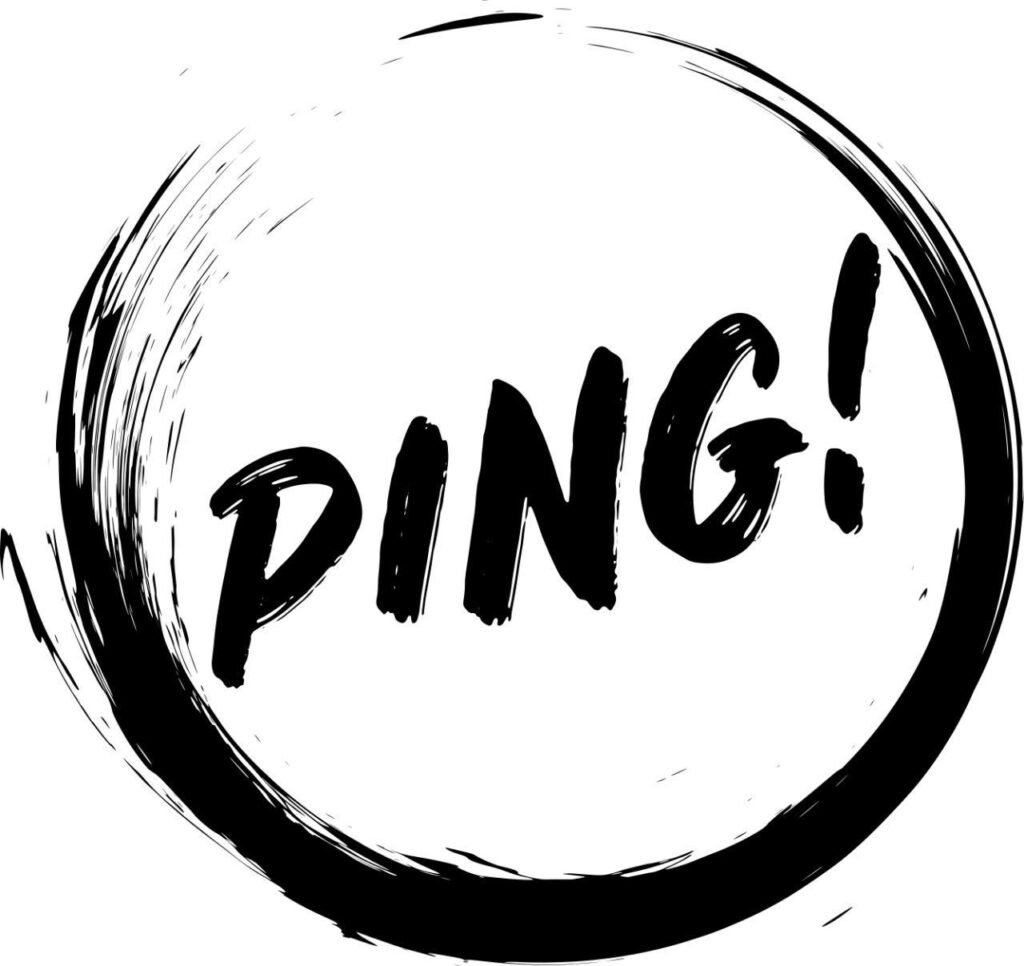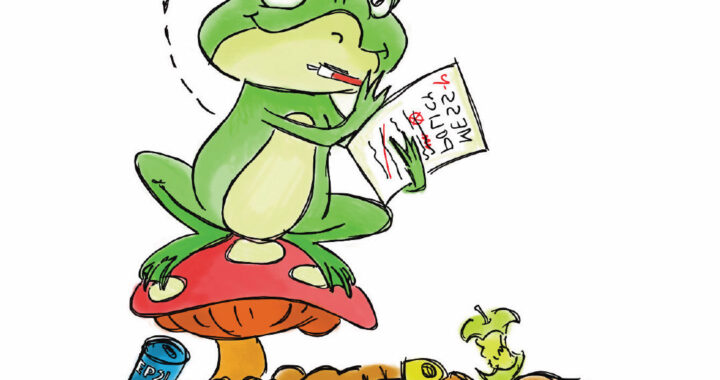
Ping! refers to all the members of the Ping! Team, as mentioned in the credits page of the website.
Vision
Ping! is a young newsletter of a young institute. With being young, comes love, passion and a yearning for etching one’s name in the history books.
With Ping!, we strive to give the community a voice. Not just a voice that is heard, but a voice that is listened to, understood and given its due consideration. Ping! wants to be the platform that says what everyone thinks, but no one says out loud.
Ping! aims to reiterate to the campus community that awareness is king. There is power in numbers and awareness is the way to get those numbers. Awareness is the first big step to bringing change, and Ping! wants to be part of that big step that people take.
Ping! wants to target apathy. And it wants people to have fun while doing it.
Principles of the Editorial Policy
Accuracy
Ping! will do its level best to ensure accuracy in all output. Articles must be well sourced and presented in an unambiguous language. Claims, allegations, material facts and other content that cannot be corroborated should normally be attributed. Any factual errors will be acknowledged and corrected appropriately.
Fairness
In case of reportage, the opinions of all parties involved will be taken before publication and the reportage will be as unbiased as possible.
Quality
In case of perspectives or opinions, quality and coherence of arguments is the most important criteria for publication. Only in the most extraordinary cases will the editor not publish an article because of value judgement. If the editor feels little can be done to improve quality of content, the article will not be published. However, if the quality of language or eloquence is the issue, the editor must try to work with the author to improve the article to the best of their ability.
Value for Privacy
Ping! will not publish private information unless the editors deem it absolutely necessary to do so in public interest. Due consent will be taken for usage of photographs (see permissions).
Diversity
Ping! will be a platform for having your voice heard, irrespective of who you are. While Ping! itself is an open platform, not all people express their opinions as often or as easily as others, and the editors must put in effort to bring out opinions and pieces from people who are generally not heard because of language, societal or other barriers.
Accountability
Ping! is an independent magazine, and therefore the editors are responsible for the content of the magazine, legally or otherwise.
Changes to the Editorial Policy
Any change to the policy must follow the guiding principles and ideally should be to enhance any of the above. Editors have final say, but ex-editors and members of the Ping! team should be consulted before any change.
Section Wise Policy
What goes into the magazine, by content. This section also serves as directory of all sections currently in the magazine.
General
Policy that, if not specifically overridden, applies to all the following sections.
What languages are allowed for this section?
English, Hindi, Telugu. For other languages try and get translations as well, as the outreach would be generally rather low.
Are expletives allowed in this section?
Preferably not, unless the authors and editors feel there is obvious loss of impact by its omission.
Can this section republish content?
Never in print, or in Pen Stand.
In general, try and abstain from such. Original content is priority.
Can writers republish their articles elsewhere?
Yes, but they should credit Ping! as the original publisher.
Can writers request for articles to be removed once published?
No, but the article’s author may be made anonymous if necessary.
Campus
Purpose: Reportage, information or opinion that is related to and mainly involves happenings at IIIT.
Pen stand
Purpose: Original short stories, poems or prose.
Does this section need to have original content/ can it republish content?
No.
Are expletives allowed in this section?
Yes. Author’s creative license.
Film Syndrome
Purpose: Reviews and analyses of movies.
Movie and television reviews and commentary.
Cynical Cindy
Purpose: A satire on any event that occured in college, or any college-related aspect.
What languages are allowed for this section?
English.
Wise Wendy
Purpose: Answering reader questions satirically.
Eye to the Future
Purpose: The column shall feature one article or opinion piece dealing in themes of technology and its impact on society, economy and culture; for every issue. The treatment may not be complete or unbiased, as long as it provokes an interesting line of enquiry, speculative or critical. The writing, however, must be sensitive to the audience it aims to target within the campus and the readership of the journal; while it would be expected that eventually the community and conversation around this column gets progressively more mature.
The Feature Column Editor assigned for this shall invite ideas from the general readership, and may choose, with an understanding of the EdBoard, any such theme for the column, independent of any other editorial feature of the journal. However, preference might be given to pieces, that
- deal with themes that are relevant in an immediate context or current affairs.
- are critical responses to earlier published works in the same column.
- reviews a recent book, or is a commentary on recent invention or innovation.
- or, initiate discussion from some unfamiliar, but rigorous, perspective.
The Author(s), therefore shall be solely responsible for the opinions expressed. And with the exception of the Editor’s responsibility for the manner of expression, the magazine shall not be responsible for the same.
What languages are allowed for this section?
English.
Does this section need to have original content/ can it republish content?
Plagiarism shall be responded with blacklisting.
Are expletives allowed in this section?
Vulgarity and profanity shall be heavily discouraged.
Can writers republish their articles elsewhere?
The Author(s), may choose to republish or make available for syndication such piece published in this column, if they so choose to, once the web edition has been published, only if the reprint carries the link to the original publication on Ping website.
Sponsored Articles
Ping! will not, in an unpaid article, publish content that is promotional, especially in relation with for-profit companies.
Personal Information
Principles
Private behaviour, information, correspondence and conversation should not be brought into the public domain unless there is a public interest that outweighs the expectation of privacy. There is no single definition of public interest. It includes but is not confined to:
- exposing or detecting crime
- exposing significantly anti-social behaviour
- exposing corruption or injustice
- disclosing significant incompetence or negligence
- protecting people’s health and safety
- preventing people from being misled by some statement or action of an individual or organisation
- disclosing information that assists people to better comprehend or make decisions on matters of public importance.
There is also a public interest in freedom of expression itself.
When considering what is in the public interest we also need to take account of information already in the public domain or about to become available to the public.
When using the public interest to justify an intrusion, consideration should be given to proportionality; the greater the intrusion, the greater the public interest required to justify it. Satirical articles are given more leeway in this regard as they are not to be taken seriously.
Implementation
Once it has been established by the above that whatever private information has been stated about said person is true and is of public interest, the following must be strictly followed:
- The author cannot be anonymous barring exceptional circumstances.
- The parts of the article relevant to those named must be sent to them before publication for their comments and their statements must be included with the article verbatim. All possible means will be used to reach them and the article will be published without their statement only if none was given after waiting for a sufficient period of time.
- After the article has been published, if there are significant improvements to the status quo as mentioned in the article (especially one that makes any section of the article or any accusation false), those must be edited into the article as and when they occur. The editor/ author/ staff writers may contact the relevant bodies to find out about the same.
Redaction
Refer to general policy on redaction
Redaction
Redaction is only applicable to the online issue, or in online versions of the print articles.
- In case any piece of information is found out to be false, it will be redacted with an apology.
- In case it is realised after publication that the policy on personal information has not been followed in principle, the details will be redacted with an apology.
- In case it is realised after publication that the policy on personal information has not been followed implementation-wise, the names will be redacted with a note explaining this. The editor will wait for sufficient time and send the article to relevant people for comments, and the article will be re-published with the changes.
- In case anyone named in an article requests for redaction of name, names will be redacted with a note assuming it falls in line with the policy on personal information.
Permissions
Personal Information
Look at policy on personal information.
Photos
Consent must be taken directly (from the subject of the picture) or indirectly (ensuring the photographer has permission to share photos, or the photo was taken by an authorised person at a public event).
Conflict of Interest
In the case that an author reporting about a specific group or committee also belongs to that group or committee, this information must be clearly mentioned in the article.
Checks on the Editor
- After one editorial term comprising of two publication cycles, if the editor would like to stay on, they may do so if a majority of the Ping! Team votes for the same where half of the current team as credited on the website vote.
- If a majority of the Ping! Team, at any point in the editor’s term, wishes to remove the editor on grounds of transgressing the policy, it shall be allowed subject to a majority vote where half of the current team as credited on the website vote.

 Cleaning up the Mess?
Cleaning up the Mess?  We Are So Cooked
We Are So Cooked  Qu’ils mangent de la grenouille! (Let Them Eat Frogs!)
Qu’ils mangent de la grenouille! (Let Them Eat Frogs!)